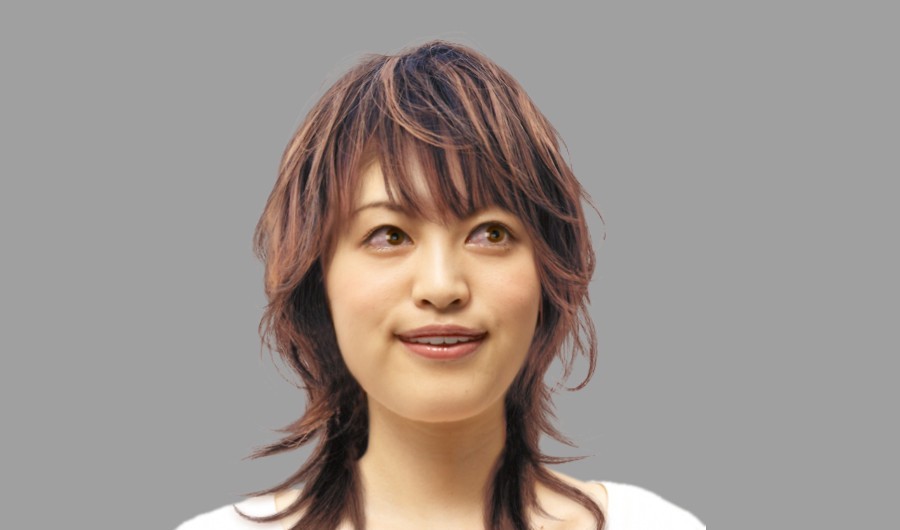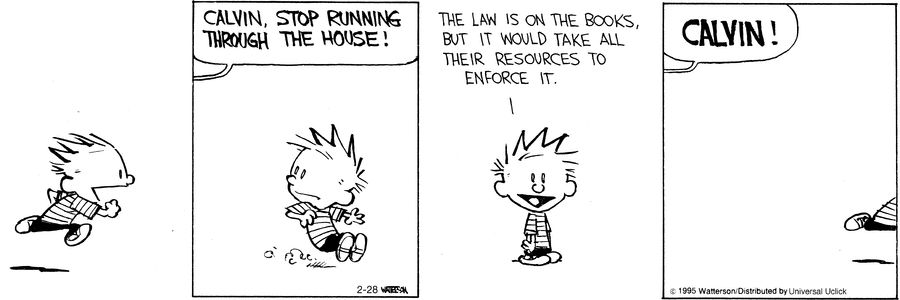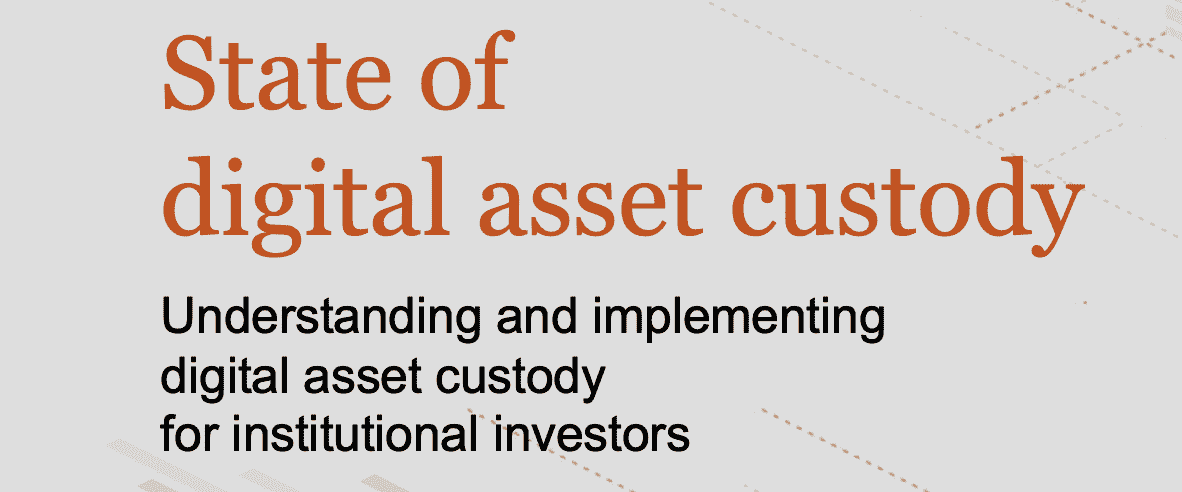Opinion | Trust: Trusted third parties, humanity and conflicts of interest
Since I was crazy about the drama "Fantastic Story" last weekend, I couldn't help but relive the excitement of riding a bicycle through the American suburbs. At that time, the whole town was like a playground. The residents in the town knew each other. We could walk the streets without any restrictions, but we still had to knock on the door when we visited friends and relatives. What a wonderful memory… Well, it’s all I’ve fantasized about. In fact, I was born and raised in a city in Malaysia. The city is too big, riding can not ride, but also beware of being chased by stray dogs, accidentally drowning in the strange crowd, Google maps will take only a few years. If I am really lost in the crowd, my social phobia will probably make me feel better than death.
To be honest, the community I imagined can build trust between people, not only because of the reputation of word of mouth, but also because the small community itself is relatively simple . If I want to do anything, whether it is to buy things or take a walk, I have to meet other people face to face, and I will soon be familiar with them. The possibility of any personal fraud is greatly reduced, because once it is revealed, the fraudster will not be allowed for this small community, but will have to abandon all the dead ends. This community lacks a clear system to act as a trusted third party and can only rely on the reputation system of the community itself.
However, for a larger community such as the city, the situation is different; due to the large population base of the city, as the population continues to grow, the possibility of recognizing the familiar face will be greatly reduced . Population growth brings more than just an increase in the proportion of faces in the population. More importantly, our brains cannot remember so many faces. Even if we can do it, we don’t have time to understand the hidden stories behind these faces. Therefore, we tend to stay away from the crowd and immerse ourselves in our own circle of communication. This creates an ideal environment for those who are unconcerned, so that they can easily "disappear in the sea" after doing evil. If these bad guys can't be punished, the city will not exist. Therefore, the importance of trusted third parties is self-evident. There are some institutions (governments, banks, enterprises) in the city to record personal information, so as to protect everyone's personal rights and property, and let our brains not have to remember Then multiple faces.
It's worth noting that although reputation is closely related to trust, subtle differences can make a big difference when discussing trusted technologies. As the size of the network expands, these differences become more apparent as trust in individuals is gradually replaced by trust in the system. This document by Olnes is a good illustration of the difference between these two trusts and provides a general overview of the trust system. As follows:
- The storm has disbanded the TV team, but what about the coins they sent?
- Weiss analyst: Bitcoin or will be back and forth, bringing the best buying opportunities since 2015
- Ethereum entered the outbreak! Ethereum Foundation allocates 30 million US dollars to escort Ethereum 1.0, 1x, 2.0, etc.
- Technical trust means that the individual believes that the system will operate as expected (reliability), can effectively prevent attacks (system security), and protect the interests of users (property security)
- Organizational trust is based on the cooperation of other participants/users within the system.
In other words, the difference between the two is that the former is derived from an objective system that is not affected by personal emotions, and the latter is derived from unpredictable and subjective individuals . By definition, a completely trust-free system does not depend on whether the participants are sincere.
Why do you need a trusted third party
From the point of view of most people today, Trusted Third Parties (TTP) make our lives easier because it actually enables the transfer of trust from the personal reputation level to the organizational reputation level. That's why the names Deloitte, EY, KPMG, and PWC sound familiar. They are the names of some entities, but most people don't. Know how they work. In essence, whether it is the above-mentioned four major accounting firms or other companies, we do not need to know who works in these ways, only need to know that their audit results are valid. Importantly, these audit results are generated by a black box that has its own set of rules and systems . In fact, under the guarantee of a trusted third party, the relationship between the two parties can be indirectly established.
The existence of a trusted third party is not a bad thing in itself, but if the cost of moving to a competing product is too high, or even there is no alternative, then the system will go wrong . The audit industry can reflect this to a certain extent – many multinational companies need to provide audit reports with four major signs (in many cases legal requirements), otherwise they may be questioned. Reputation is the lifeblood for auditing companies, so they love feathers the most.
However, there may be conflicts of interest: industries that are monopolized by a few companies will want to protect these oligarchic companies in order to stabilize the credibility benchmarks of the entire industry system. This review is a good summary of why the auditing industry should no longer allow several oligarchy firms to conduct independent audits as they wish. A few black sheep can ruin the reputation of a company, then there are only two ways to go:
- Expose the shady oligarchs in the industry and impose fines. In this process, the credibility of the industry will be seriously damaged. Moreover, if this is done, the number of oligopolys in the industry will decrease, which will lead to more serious consequences.
- Internal resolution or secret handling. In this case, people outside the industry know nothing about this and the business will proceed as usual.
From the perspective of the oligopolistic market based on trust, there is no difference between the above two methods. The problem is that even if the industry itself is not falsified, in view of the self-referential nature of the industry (after all, the audit companies are auditing each other), we can't tell. It is still the truth that many things in this world are not black or white, but large grays that we cannot see . It is obvious that the operation of an industry should not be based solely on credibility or sincerity. Therefore, decentralization technology has a place to use, and the introduction of scientific and technological trust as a guarantee of reputational trust.
Trusted horror valley theory

– Some things make people feel "uncomfortable" –
Anyone familiar with the phenomenon of the Terror Valley knows that this is a theory that has begun to receive widespread attention with the rise of humanoid robots. When a non-human object is very close in appearance to the real person but cannot completely deceive the human brain, an uncomfortable feeling arises spontaneously. Similarly, I think that trusted systems will be uncomfortable with the rise of decentralized technology, because these decentralized technologies have been used, but they have not yet matured.
For many blockchain enthusiasts like us, we are more likely to accept such technologies, both because of the strong rejection of corrupt institutions and on the other hand based on the belief in such technologies. However, for the vast majority of people in the world, it is difficult to accept the leap from reputational trust to technical trust, because trusted third parties are currently sufficient to meet our daily needs . Think again, once there is a problem with the chain system, but can not find a third party that can be held accountable, everyone is more difficult to accept. This abstract technique requires users to hand over control to an invisible cloud black box, which happens to trigger our two most negative emotions: fear of the unknown and anxiety about loss of control .
This paradigm shift is unprecedented in human history, and some people do not trust computers, and it is even more difficult to overcome the resistance to humanity in this abstract transformation. All innovative products are the same, first verified by a group of early adopters and recommended to the mainstream public who do not feel the technology, can become mainstream products. This means that completely decentralized technology must have a strong community base and build a good reputation before it becomes mainstream, enough to eliminate the public's fear of changing the status quo . As mentioned earlier, the most viable approach is to use their strong reputation to endorse decentralized technologies through existing trusted third parties.
"The establishment of trust takes years to work, but it can be broken and it will never recover."
What cannot be ignored is that trust itself is not a guarantee of future behavior. Because of this, the above quote can last forever. However, those who see this sentence rarely think about it, if the perpetrator does not intend to re-establish the trust relationship. This is the problem currently faced by trusted third-party architectures because it is based on the idea of “first trust and then revalidation”; but logically, trust should only be established after verification.
This is a major advantage of blockchain technology over current technology architectures, as different consensus protocols allow parties to trade without mutual trust, either directly or indirectly through trusted third parties. The mechanisms used to achieve this goal are not the topics we are discussing today, but this architectural possibility allows us to start thinking about a more important issue in which technical trust is superior to reputation/organizational trust.
According to the theory of rational choice, in any field, as long as there is a possibility that the unscrupulous person will destroy the trust to obtain personal interests, this technology should be deployed. However, as mentioned above, there are still some minor problems:
- Unknown fear : Reputation trust is a necessary condition for mainstream application, and it cannot be placed on the internal working principle of letting the mainstream public understand the decentralized system;
- Conflict of interest : In addition to the serious damage to the credibility of the industry, the vested interests of a monopolistic company with a strong reputation directly conflict with the benefits promised by decentralized technology;
- Abstract advantage : Decentralization technology is not completely better than centralized technology. The problem is that the practicality of decentralization technology is too abstract, but when it comes to important quantitative indicators such as transaction volume per second (TPS) and confirmation time, centralization techniques are often better in theory. Decentralization technology;
- Human error : In essence, the blockchain is actually a series of instructions written by humans, so it will inherit our imperfections. Although software is now infiltrating across industries, decentralization technology is targeted at finance and knowledge – a slight mistake can have serious consequences. Therefore, even the flawless decentralized technical code takes time to prove that it can resist the attack.
- Code Execution : Even though these technologies eventually become "the only source of trusted data," it is essentially just a digital record that can be recognized or ignored by people in the real world. Before code can be automatically executed through real-world interfaces such as robots and the Internet of Things, it still relies on trusted third parties.

– Look through everything Calvin –
Keep in mind that although trust is based on subjective measures of reputation and/or experience, responsibility can usually be judged by event records. In determining the actual benefits of distributed ledger technology, we will come to a crucial conclusion:
Simply put, if we trust a party, we can maintain a database containing all the records and disclose the information as required without having to create a distributed ledger on a global scale. Another benefit for the company to act as a trusted third party is the ability to further control access to data that is not possible in a globally distributed system. —— ABB Research Institute
Goldilock guidelines
In theory, when a network grows to a certain degree, a system that does not require trust is an ideal solution to many governance problems . Under the premise that the participants and the system have the same interests, the rules and protocols adopted by the system should be mathematically used to ensure the participants' behavioral norms. This type of technology actually requires us to trust deterministic mathematical models and algorithms. This sounds logical, but by definition, such models are not likely to apply to all aspects of real life .
Despite this, decentralization technology is still a stepping stone to social progress because it provides a way to address the current system's over-reliance on reputation and sincerity.
As with most things in life, the best solution is likely to be between the highly centralized system we see today and the fully decentralized system envisioned by idealists. That is to say, the Goldilock point (best balance point) of this solution depends on the specific situation, but it depends to a large extent on the potential loss of the untrustworthy technology beyond the operating cost of the decentralized technology. From a systemic point of view, the greater the potential conflict of interest, the stronger the boost of such technology.
Those with foresight will point out that the cost of decentralized technology depends on other trusted third parties, especially the government. What I want to explain is that even the private chain technology that needs to be licensed helps the alliance between multiple participants to solve the systemic corruption problem, and only a small expansion of the network size (n>2) can be significant. Reduce the likelihood of malicious participants. This will greatly improve the security and efficiency of the system, but most importantly, the credibility of the entire system will be sublimated.
For use cases such as value storage and ownership of personal data, public-chain technology seems to be the right choice because it ensures the system's right to self-determination . However, as mentioned above, to achieve a fully decentralized system, trusted third parties must first adopt decentralized technology, and its strong reputation is easier to gain the trust of the public and pave the way for this technology. New technologies such as zero-knowledge proof, trusted execution environments, and code obfuscation will lead to exciting developments that create models that minimize conflicts of interest. This is the ultimate goal we should strive to achieve, making our systems more resistant to corruption/fraud.
Thanks for reading, this article only expresses my personal opinion of trust. I hope to hear your thoughts, please leave a message 🙂
Original link: https://medium.com/coinmonks/trust-trusted-third-parties-ttps-human-nature-conflicts-of-interest-f5fbeab616dc Author: Aw Kai Shin translation & proofreading: Jin Zhou Min Min &
(This article is from the EthFans of Ethereum fans, and it is strictly forbidden to reprint without the permission of the author.
We will continue to update Blocking; if you have any questions or suggestions, please contact us!
Was this article helpful?
93 out of 132 found this helpful
Related articles
- Market Analysis: Once again, the BTC Air Force has arrived.
- The US Copyright Office issued a public statement that did not recognize that CSW is Nakamoto.
- Swiss National Stock Exchange Group SIX will launch Swiss Franc Stabilizer
- Those who create resonance coins are likely to be nailed to the shame column of the currency circle.
- Under the blockchain blessing, your copyright is yours
- Private placement is smooth, opening is deserted, why is LEO not as expected?
- Ron Paul: Bitcoin or dollar substitute






